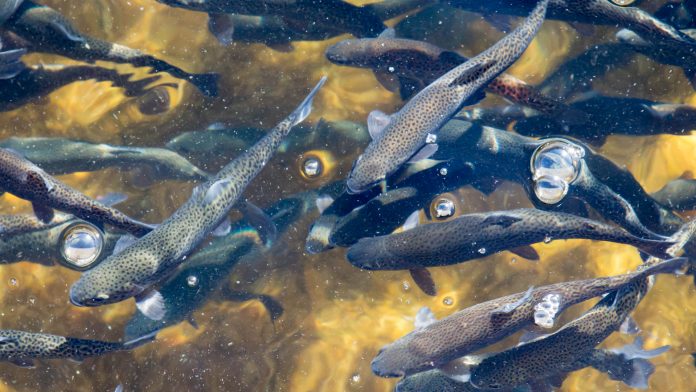The University of California – Santa Barbara, USA, have developed a strategy for sustainable aquaculture, reducing the strain on global food supplies.
Aquaculture is the fastest growing food sector, with each person consuming an average of 20kg each year. Around 50% of all seafood consumed today is sourced through aquaculture, a sector that is expected to double by 2050. Scientists from the University of California – Santa Barbara (UCSB) have developed a strategy for sustainable aquaculture based on the complex interactions between humans, animals, and the environment, an approach often referred to as the One Health framework.
Although aquaculture can help stabilise local economies and reduce food shortages, there is a range of sustainability challenges affecting the sector, such as environmental degradation, antibiotic resistance, and poor working practices within individual aquaculture businesses.
Assistant Professor Halley E Froehlich from UCSB collaborated with a team of scientist, economists, sociologists, and policy specialists to develop an inclusive and sustainable solution to the growth of aquaculture. Froehlich said: “Aquaculture is now being more widely recognised as an important part of our global food system. And it will continue to grow. So, the question is, how do we plot that course in a more sustainable way?”
A sustainable plan for aquaculture
Using the One Health framework, researchers have suggested that a set of metrics included in national aquaculture strategies to ensure sustainability in the expanding industry. The framework addresses concepts like access to nutrient rich food, ethical employment, fish health, and maintaining a small environmental footprint. The framework has a focus on communication and cooperation between governments and aquaculture companies. “If you don’t have that knowledge transfer – for instance, from scientists to policy-makers or farmers to scientists – these types of framework structures won’t go anywhere,” Froehlich said.
As published in the academic journal Nature Food, the One Health approach offers a tool for governments to consider when designing policies. When discussing the paper, Grant Stentiford of the Centre for Environment, Fisheries and Aquaculture Science, said: “I hope it will become a blueprint for how government and industry interact on these issues in the future. Most importantly, it considers aquaculture’s evolution from a subject studied by specialists to an important food sector – requiring now a much broader interaction with policy and society than arguably has occurred in the past.”







